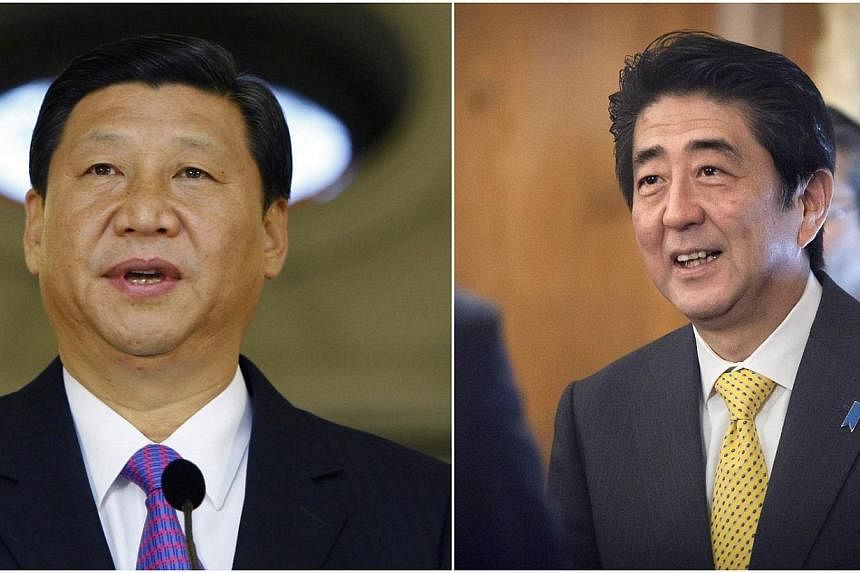CHINA and Japan have agreed to resume political and security dialogue disrupted by territorial and war-time historical disputes since 2012 though it remains unclear if Chinese President Xi Jinping and Japanese Prime Minister Shinzo Abe would hold their first-ever summit during the Apec meetings.
Japanese broadcaster NHK reported on Friday afternoon that a meeting would take place next week on the sidelines of the ongoing Apec summit in Beijing though there were no details yet on the exact date and the format.
But Chinese foreign ministry spokesman Qin Gang did not confirm or deny the report.
Instead, he said: "On the issue of a meeting between leaders from both sides, China's stance is very clear. We hope Japan will continue to move in the same direction, and use practical actions to improve bilateral relations and create a necessary environment for leaders of both countries to meet."
Earlier in the day, the Chinese ministry issued a statement saying both sides had reached a "principled agreement" on four points during a meeting between Chinese State Councillor Yang Jiechi and Japan's National Security Adviser Shotaro Yachi, who was reportedly despatched in a last-ditch attempt by Mr Abe to secure a meeting with Mr Xi.
The most important consensus was that China and Japan have "acknowledged that different positions exist between them regarding the tensions which have emerged in recent years of the Diaoyu islands and some waters in the East China Sea".
The disputed islands, which are administered by Tokyo and known to the Japanese as the Senkakus, have caused a severe chill in Sino-Japanese ties since August 2012, after the Japanese government nationalised it from a private owner.
Both sides have sent vessels and planes to underscore their claims, heightening risks of accidental clashes between the world's second and third largest economies.
Disputes over historical accounts of Japan's World War II actions in China, along with Mr Abe's visit and offerings to the Yasukuni war shrine in Tokyo, have also damaged ties.
China's conditions for a meeting between Mr Xi and Mr Abe was that Japan had to acknowledge that the islands are in dispute and that Mr Abe would promise not to visit Yasukuni again.
China's foreign ministry said both countries also agreed to prevent the island spat from aggravating through dialogue and consultation, and to set up crisis-management mechanisms to avoid clashes.
A commitment was also reached to follow the principle and spirit of the four political documents the two countries signed in 1972, when they resumed diplomatic ties.


